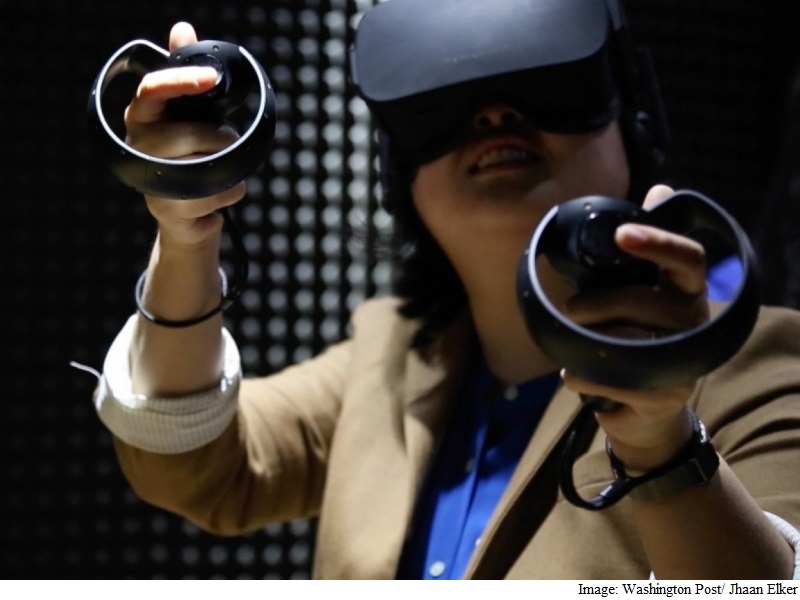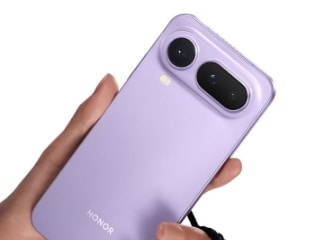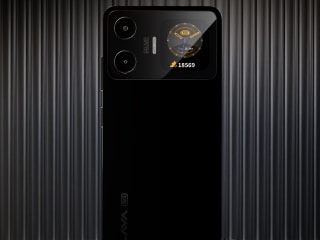- Home
- Games
- Games News
- Oculus CEO Brendan Iribe Explains Why the Rift Has a $600 Price Tag
Oculus CEO Brendan Iribe Explains Why the Rift Has a $600 Price Tag

The launch came with a lot of hype, and pre-order supplies went quickly. (Try to pre-order one now and you get an estimated ship date of June.) But there was a bit of a blot on the announcement as well, as many potential buyers complained about the $599(roughly Rs. 40,000) price tag.
I sat down with Brendan Iribe, chief executive of Oculus, at the Consumer Electronics Show. He said that there's a very simple reason that the cost of the Rift is so high: It's made from expensive components. The company, Iribe said, wanted to focus on bringing the best virtual reality experience possible to market and didn't want to compromise on the quality of the headset or the experience.
(Also see: Oculus Rift Preview: Bringing Reality to the Virtual World)
"We made it as close to the cost of the hardware as possible," Iribe said. "The margin is razor-thin." He said that the company, at least initially, is looking at the Rift as a break-even initiative.
Part of the kerfuffle over the price is due to earlier comments from Oculus co-founder Palmer Luckey, who had indicated the Rift's price would be in the ballpark of $350 (roughly Rs. 23,400) - the price of the kits the company was sending to developers. That set expectations for a much lower consumer price than the one announced this week.
(Also see: CES 2016 Awash With Altered Realities)
On Reddit, Luckey apologized for his earlier comments, explaining that at the time he was trying to combat expectations that the Rift would cost more than $1,500 (roughly Rs. 1,00,340).
"My answer was ill-prepared, and mentally, I was contrasting $349 with $1,500, not our internal estimate that hovered close to $599 - that is why I said it was in roughly the same ballpark," Luckey wrote in an open Reddit question-and-answer session.
Still, Iribe acknowledges that the price of the Rift does mean that it's not for everyone, but he thinks the price is still a good value for the experience you get.
Finding the right price for the Rift is a tricky dance. There are cheaper ways to try VR. The wireless Samsung Gear VR, for example, is much cheaper at about $200 (roughly Rs. 13,380) and uses Oculus's technology and is powered by a smartphone. But you get what you pay for. While the Gear VR is a good introduction to VR, it is nowhere near as immersive as the Rift.
And the experience of using the Rift is very good. Oculus let me try out a couple of demos with the headset and its forthcoming Touch controllers.
It's hard to explain just how convincing the virtual reality is, particularly when using the controllers, which loop around your hands and replicate the position and angle of your hands inside the virtual world. In one demo, called the Toy Box, I played catch with an Oculus demonstrator and used a slingshot to take down an array of targets. (Or tried to, anyway.) When I was done, I actually tried to set the controllers in my hand down on the virtual table, forgetting for a moment that they weren't there.
But even without the ability to see your hands in the virtual space, the Rift's stability and replication can really convince your senses that you're somewhere else - and that a person who might be in another room or another continent is actually standing next to you.
Iribe said that it's been exciting for him to see how people outside the company have reacted to the latest version of the headset.
(Also see: Virtual Reality Is Finally Here, Yet Still Has a Ways to Go)
"Most of the people, when they take it off, immediately say, 'What if you did this with it?' Everyone has an idea," he said.
It will be interesting to see how Rift competitors such as Sony and HTC, which is working on a VR system that requires you to place multiple sensors around the room, will also handle the price question. Dedicated gamers will likely pick up the devices - if you take a cue from Oculus's pre-order numbers, in fact, perhaps more than anyone anticipated. But even with the first consumer models headed out into the real world, the cost of these headsets may keep them from going mainstream for quite a while yet.
For Iribe, the next steps are clear: Find more applications for the Rift to make it a more compelling device. The company has actively courted game developers to launch content with the Rift and is fielding other ideas by way of its app marketplace.
"We're focused on content now," he said, adding that it does Oculus no good to have a great device with nothing to do on it. "Content drives hardware."
© 2016 The Washington Post
Catch the latest from the Consumer Electronics Show on Gadgets 360, at our CES 2026 hub.
Related Stories
- Samsung Galaxy Unpacked 2025
- ChatGPT
- Redmi Note 14 Pro+
- iPhone 16
- Apple Vision Pro
- Oneplus 12
- OnePlus Nord CE 3 Lite 5G
- iPhone 13
- Xiaomi 14 Pro
- Oppo Find N3
- Tecno Spark Go (2023)
- Realme V30
- Best Phones Under 25000
- Samsung Galaxy S24 Series
- Cryptocurrency
- iQoo 12
- Samsung Galaxy S24 Ultra
- Giottus
- Samsung Galaxy Z Flip 5
- Apple 'Scary Fast'
- Housefull 5
- GoPro Hero 12 Black Review
- Invincible Season 2
- JioGlass
- HD Ready TV
- Laptop Under 50000
- Smartwatch Under 10000
- Latest Mobile Phones
- Compare Phones
- Tecno Spark Go 3
- iQOO Z11 Turbo
- OPPO A6c
- Samsung Galaxy A07 5G
- Vivo Y500i
- OnePlus Turbo 6V
- OnePlus Turbo 6
- Itel Zeno 20 Max
- Lenovo Yoga Slim 7x (2025)
- Lenovo Yoga Slim 7a
- Lenovo Idea Tab Plus
- Realme Pad 3
- Garmin Quatix 8 Pro
- NoiseFit Pro 6R
- Haier H5E Series
- Acerpure Nitro Z Series 100-inch QLED TV
- Asus ROG Ally
- Nintendo Switch Lite
- Haier 1.6 Ton 5 Star Inverter Split AC (HSU19G-MZAID5BN-INV)
- Haier 1.6 Ton 5 Star Inverter Split AC (HSU19G-MZAIM5BN-INV)

















